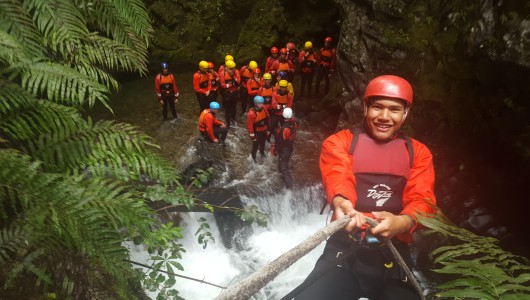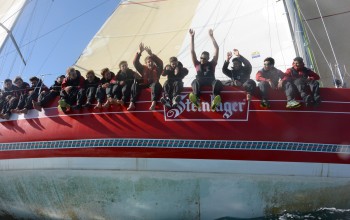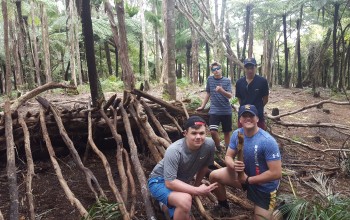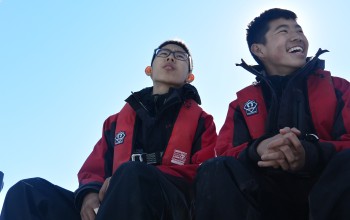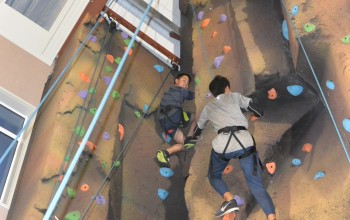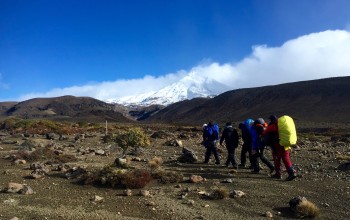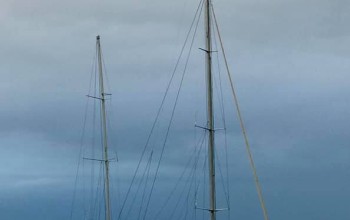The Year 10 Adventure Challenge is an integral part of the student experience at King’s College.
It aims to unlock potential and offer opportunities for self-discovery by taking students away from home or school for around 18 days to explore the wilds of our great outdoors. This is part of the Education Outside the Classroom curriculum.
The full itinerary includes:
- 9 nights at Ahuroa: King’s College Venture Camp, Puhoi.
- 4 nights on Steinlager II or Lion New Zealand: Sir Peter Blake's 85 foot maxi round the world yachts.
- 5 nights in the North Island Wilderness: student-led final expedition.
The Challenge covers a broad array of outdoor activities including, among others, tramping, swimming, bushcraft, camping, orienteering, ropes courses, abseiling, shooting, trust and leadership exercises, confidence courses, myriad boating and water activities, and rock climbing. There will be opportunities for students to learn an array of outdoors skills and gain confidence in their own abilities.
N.B. All activities are weather dependent and some are also seasonally dependent, so there may be significant variation in activities undertaken by various classes. Adventure Challenge activities can count towards the Duke of Edinburgh.


